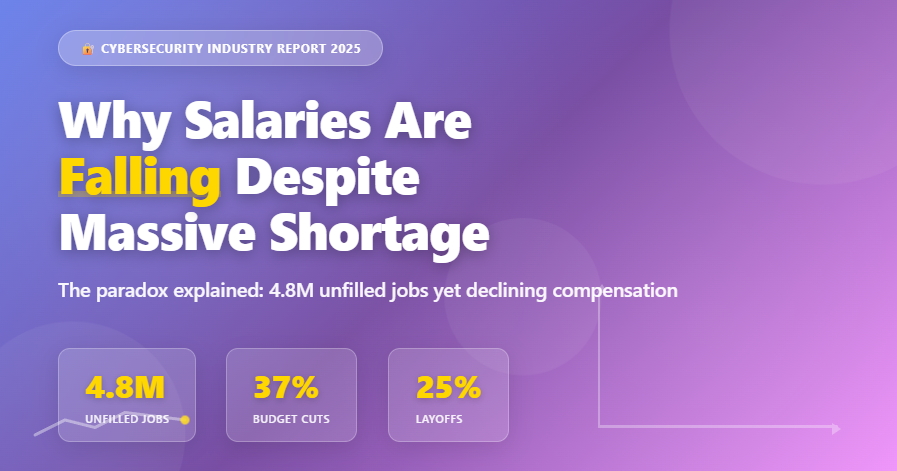SOCKS Proxy vs HTTP Proxy vs VPN vs SSH: What’s the Best Choice for Privacy?

With more people developing a concern over the privacy of their internet connection, more people and companies are looking for safer means of routing their connections. Cybersecurity Ventures’ report shows that global need for safe internet connections will grow since breaches and cyber-crimes become more common and complex. Source: Cybersecurity Ventures Report.
In this article, four commonly used tools as SOCKS proxies, HTTP proxies, VPNs, and SSH that allow users to ensure their privacy online and encrypt their connection will be described. This may be so because although these tools share such functions, they function differently and are generally not well understood.
It is our hope that we can differentiate between these tools, elucidate their most appropriate applications, and assist to make an optimal decision as to the user’s current requirements for privacy and security.
What is a SOCKS Proxy?
Socks Proxy or sometimes called Socket Secure is a way of making your connection to a server through a proxy server while hiding your identity by hiding your real IP address. Unlike http proxies which can only intervene in web-related traffic, Socks proxies operate at the transport level, or the OSI fourth layer, so the proxies can work in a variety of internet situations such as ftp, email, peer to peer, etc.
Primary Use Case:
SOCKS proxies are used in such operations as torrenting, unblocking restricted content, and content that may be restricted in some parts of the globe. This makes them more flexible than HTTP proxies, which can only process HTTP request handling any type of traffic.
How It Works:
A SOCKS proxy simply relays all data that comes to it to the other end of the spectrum – it works as a go-between for your device and the internet. As it does not serve the purpose of interpreting the traffic, it is faster vis-à-vis other proxies but not as secure because it does not encapsulate data.
Pros and Cons of SOCKS Proxy
| Aspect | Pros | Cons |
|---|---|---|
| Speed | Faster than VPNs as it doesn’t encrypt data | Limited security and privacy due to lack of encryption |
| Traffic Handling | Can handle any type of traffic (e.g., FTP, P2P) | Doesn’t block malicious content or ads |
| Anonymity | Masks IP address for basic anonymity | Doesn’t fully protect user identity online |
| Setup & Cost | Easy to set up and often cheaper than VPNs | Doesn’t offer the comprehensive protection of VPNs |
In knowing the operation of a SOCKS proxy, it is easier for the users to decide when they need to apply this tool for fast access and minimal concealment only but not for heavily secured connection.
What is an HTTP Proxy?
An HTTP proxy is a server – sitting between the client and the actual server with web content – created to manage only HTTP and HTTPS traffic. It enables users to make request on the web through concealing their IP addresses, which is very important for anonymous surfing. While a SOCKS proxy can support all kinds of connections, HTTP is only used for web-related connections.
Role in Handling HTTP and HTTPS Traffic:
HTTP proxy servers can censor and monitor material, record users’ access to websites, and limit access to specific websites, and that is why it is widely used in business and home applications. It can still serve as a content blocker, or make it possible to avoid being blocked from accessing certain websites by routing their traffic through a server in a different country.
Common Uses of HTTP Proxies:
- Bypassing Geo-Restrictions: Users can access websites and content restricted by geographic location by routing traffic through a proxy server located in a different country.
- Content Filtering: HTTP proxies are often used in workplaces or schools to block specific websites, restrict access to certain content, or log browsing activity for security purposes.
- Improving Web Browsing Speed: Some HTTP proxies can cache web pages, delivering content faster by reducing load times.
Detailed Table: SOCKS Proxy vs HTTP Proxy
| Aspect | SOCKS Proxy | HTTP Proxy |
|---|---|---|
| Traffic Handling | Handles all types of traffic (e.g., FTP, email, P2P) | Handles only web traffic (HTTP, HTTPS) |
| Speed | Faster as it doesn’t interpret or filter traffic | Can slow down due to content filtering and logging |
| Security | Basic anonymity, no encryption | Typically used without encryption but supports HTTPS for secure websites |
| Common Uses | Torrenting, bypassing geo-blocks, general traffic | Anonymous browsing, content filtering, bypassing geo-blocks |
| Setup & Ease of Use | Simple setup, typically used for general tasks | Often used in corporate settings, requires proper configuration for content filtering |
| Encryption | No encryption | Encrypted when used with HTTPS |
Socks and HTTP both act in a way that will hide your IP and give you a certain level of anonymity but the services differ. HTTP proxies are great for web traffic and content filtering, but with SOCKS proxies you get more flexibility because they work with a lot more forms of Internet connection.
What is a VPN?
A VPN is a safe connection that shields your net connection by channelling it through a safe server while hiding your IP address and all your activities. While proxies are limited in working only with certain traffic type (html browsing, specific application), a VPN encrypts and encapsulates all IP traffic, giving end-to-end security to the entire network.
Purpose of a VPN: To sum up, the main purpose of a VPN is to ensure that information sent across the Internet is protected, cannot be read by intruders. VPNs ensure you benefit from an IP address different from your actual one depending on the server you choose to connect to. This let you unblock geographic limitations, keep anonymous and preserve sensitive information, whether you are in a public or a private network.
How VPNs Protect Privacy:
- Encryption: VPNs use encryption protocols (like AES-256) to secure data as it travels between your device and the internet, protecting it from potential attackers.
- IP Masking: By masking your real IP address, VPNs hide your online identity and location, preventing websites, governments, or malicious entities from tracking your online activities.
Pros and Cons of Using a VPN vs. Proxies
| Aspect | VPN | Proxies |
|---|---|---|
| Traffic Handling | Encrypts all internet traffic (network-wide) | Handles specific traffic (e.g., HTTP or SOCKS) |
| Security | High security due to encryption protocols | Lower security, typically no encryption |
| Privacy | Masks IP and encrypts all traffic | Masks IP but doesn’t encrypt all traffic |
| Speed | May reduce speed due to encryption overhead | Faster than VPN but lacks encryption |
| Common Uses | Bypassing censorship, secure remote work, privacy protection | Anonymous browsing, accessing geo-blocked content |
| Setup & Ease of Use | Requires installation and subscription service | Easier setup, typically free or low-cost |
| Cost | Typically requires paid subscription | Many free or cheaper options available |
Altogether, it has been noted that like all the mentioned above, proxies allow IP hiding but do not offer the level of security that VPN can give. As such, VPNs are suitable for people who desire privacy, encryption, or ensuring that all their traffic will be safe; thus, they are more suitable for tasks that need a high level of security.
What is SSH?
SSH is mostly employed as a Cable protocol that will be used in the remote connections between computers. It enables its users to remotely connect and control devices above an insecure connection like the Internet. SSH is popular with system admins as they use it to remotely access the system on the server, run commands, and to move files around.
Primary Uses of SSH:
- Secure Remote Access: SSH enables encrypted communication between a client and a server, ensuring that login credentials and data transmitted between devices are protected.
- Tunneling: SSH can be used to create tunnels, which allow traffic from different protocols to be securely forwarded through an encrypted connection, enabling safe access to internal or restricted networks.
SSH Tunneling vs. VPNs
Although both SSH tunneling and VPNs encrypt data, they serve slightly different purposes and are commonly used in different contexts.
| Aspect | SSH Tunneling | VPN |
|---|---|---|
| Traffic Handling | Can tunnel specific application traffic (e.g., web browser, email) | Encrypts and routes all traffic from the entire device/network |
| Security | Provides encrypted connections for remote access, but doesn’t encrypt all network traffic automatically | Encrypts all internet traffic from your device with stronger protocols (like AES-256) |
| Common Uses | Securely connecting to remote servers, transferring files, tunneling specific protocols | Securely browsing the internet, bypassing geo-blocks, hiding IP address |
| Setup | Typically requires command-line knowledge and manual setup | User-friendly, with apps for easy setup and use |
| Speed | Faster for specific tasks (like file transfers or remote commands) | May slow down internet speed due to comprehensive encryption |
| Cost | Generally free (available on most operating systems) | Usually requires a paid subscription for high-quality service |
| Scope of Protection | Limited to specific connections or applications | Provides network-wide encryption and protection |
SSH is often favored by system administrators and developers for its ability to provide secure access to remote machines and networks. Unlike VPNs, which encrypt all traffic, SSH is typically used to tunnel specific data or applications. While both offer encryption, VPNs are designed for more comprehensive protection across the entire network, making them suitable for general privacy, security, and bypassing geographic restrictions.
Chart: Proxy vs VPN vs SSH – A Feature Comparison
| Feature | SOCKS Proxy | HTTP Proxy | VPN | SSH |
|---|---|---|---|---|
| Security | No encryption, IP masking only | No encryption, IP masking for web traffic | Strong encryption (AES-256), IP masking | Strong encryption for remote connections, no IP masking |
| IP Masking | Masks IP, but no encryption | Masks IP for HTTP/HTTPS traffic only | Masks IP and encrypts all network traffic | No IP masking, but encrypts specific traffic |
| Encryption Level | None | None or minimal (HTTPS encryption only) | High (AES-256 encryption for entire traffic) | High for specific protocols (like SFTP, commands) |
| Speed | Fast (no encryption, lower overhead) | Fast (minimal overhead) | Moderate to slow (due to encryption) | Fast (depending on application and use case) |
| Latency Impact | Low impact on browsing | Low impact on browsing | May cause some latency due to encryption | Low latency for remote connections |
| Ideal Use Case | Torrenting, accessing restricted content | Anonymous web browsing, bypassing geo-restrictions | Secure browsing, streaming, private connections | Remote server access, secure file transfers, tunneling |
| Scope of Traffic | Handles all types of traffic (e.g., FTP, P2P) | Handles only HTTP/HTTPS traffic | Encrypts all traffic from your device | Encrypts specific traffic or applications |
Summary:
- SOCKS Proxy: Best for fast, low-security tasks like torrenting or bypassing geo-blocks.
- HTTP Proxy: Ideal for anonymous web browsing and filtering HTTP/HTTPS traffic, but lacks encryption.
- VPN: Provides the highest level of security with encryption and IP masking, but can slow down browsing speed. Best for secure browsing, streaming, and private access.
- SSH: Optimal for secure remote access and tunneling specific traffic like remote server management or file transfers.
Best Scenarios to Use Each Option

Here’s a quick guide on when to use a SOCKS proxy, HTTP proxy, VPN, or SSH depending on your specific needs:
1. SOCKS Proxy
Best for: Torrenting and gaming
- Torrenting: SOCKS proxies are excellent for torrenting because they route traffic without encryption, keeping speeds high while masking your IP address.
- Gaming: Gamers often prefer SOCKS proxies because of their low latency. Since there’s no encryption overhead, they allow fast, uninterrupted connections while bypassing geo-restrictions on game servers.
2. HTTP Proxy
Best for: Anonymous web browsing and bypassing website restrictions
- Anonymous Browsing: HTTP proxies hide your IP address while you surf the web, making it a useful tool for accessing websites anonymously, especially when encryption isn’t a priority.
- Bypassing Website Restrictions: If you’re trying to access geo-blocked or restricted content, an HTTP proxy is an easy-to-use solution to get past these blocks without impacting your browsing speed.
3. VPN
Best for: Overall privacy, data encryption, and securing your online activities
- Privacy Protection: A VPN encrypts all of your internet traffic, ensuring your data is safe from hackers, ISPs, or government surveillance. It’s ideal for anyone who prioritizes online security.
- Public Wi-Fi Security: When using public Wi-Fi, a VPN adds a critical layer of security, keeping your data encrypted and protected from potential hackers.
4. SSH (Secure Shell)
Best for: Remote access to servers and secure file transfers
- Remote Server Access: SSH is the go-to solution for developers and system administrators who need secure, encrypted remote access to servers.
- Secure File Transfers: SSH is ideal for securely transferring files between devices using protocols like SFTP (Secure File Transfer Protocol), ensuring the data is encrypted in transit.
Which is the Best for Privacy?
There are a lot of tools concerning online privacy and not all of them are as effective as people may think. There is considerable disparity in the amount of protection provided by each — SOCKS proxy , HTTP proxy, VPN, and SSH — but they all have their tangle of pros and cons. Now let’s see how all of these work and which is the best solution for data protection out of them all.
SOCKS Proxy: Minimal Privacy with High Speed
SOCKS proxies are fast because they do not limit the kind of activity one is using them for such as torrenting or online gaming. However, they do not support encryption and this implies that your data remains open to your ISP and any hacker who is interested.
Privacy Rating: ★☆☆☆☆
Trade-off: High speed, but no data encryption. Ideal for bypassing geo-restrictions or masking your IP address but not for protecting sensitive information.
HTTP Proxy: Basic Privacy for Web Browsing
HTTP can sometimes help anonymous users hide their IP address or help to avoid firewalls and blocked website. Like SOCKS proxies, they do not protect your traffic, your data is open to the network sniffers or ISP.
Privacy Rating: ★★☆☆☆
Trade-off: Good for accessing restricted content but not ideal for ensuring privacy, especially on public networks.
VPN: The Gold Standard for Privacy and Security
This is especially true for individuals who are most concerned with privacy, and the best vehicle to this end is a VPN or Virtual Private Network. That means it covers all Internet traffic, protecting your browsing history, location, and activities from hackers, ISPs or even the government. VPNs also provide an advantage in unblocking geographically restricted sites, and security is, without doubt, remarkable on all the devices.
Privacy Rating: ★★★★★
Trade-off: Slight reduction in speed due to encryption, but vastly superior protection of your data. VPNs are perfect for anyone looking to balance security with usability.
SSH: Strong Encryption for Remote Access
SSH (Secure Shell) is one of the most secured protocols being mostly used in accessing the remote servers and transferring files. As for the employment of this browser, although it provides efficient safeguard for these particular operations, it is clearly inapplicable for usual web surfing.
Privacy Rating: ★★★★☆
Trade-off: Highly secure for remote access and file transfers but not intended for general privacy protection or web surfing.
Best Privacy Option: VPN
Among all the enumerated possibilities, a VPN is the most dependable instrument in the sphere of protection of the individual’s privacy. At the same time, if used correctly, both SOCKS and HTTP proxy can help you hide your IP, and the SSH is good at protecting certain services with strong encryption, as you already know, VPN is the only method that can encrypt all your activities on the internet. It is the most preferable option for users who lack privacy and those who require flexibility in their anonymity.
Recommendations Based on Different User Requirements
- For Speed (With Basic Anonymity): If speed is your top priority and privacy is secondary, a SOCKS proxy is your best bet for activities like torrenting or gaming.
- For Anonymous Browsing: If you just want to bypass regional restrictions or access blocked websites, an HTTP proxy offers a quick and simple solution.
- For Privacy and Security: If privacy is your top concern, go for a VPN. It’s the best option for securing your online activities, especially when using public Wi-Fi or accessing sensitive data.
- For Secure Remote Access: SSH is the best choice if you need to securely access remote servers or transfer files over encrypted channels.
Conclusion: Which is the Best for Privacy: SOCKS Proxy, HTTP Proxy, VPN, or SSH?
If a user needs to keep every web session as safe as possible, the only suitable option is a VPN: It secures all of a user’s connections. To exemplify, SOCKS proxies are fast for use, especially for torrenting and games access while HTTP for use with no encryption but for anonymity. While SSH is ideal for remote logged in and file transfers. When it comes to online privacy, no other solution is stronger and demands fewer compromises than VPNs.
Read more: How to Set Up Droid VPN Over Proxy: A Step-by-Step Guide for IIT KGP Students
Read more: 10 Proven Strategies to Outsmart Cybercriminals—Protect Yourself Now!
FAQs:
1. What’s the difference between a SOCKS proxy and an HTTP proxy?
Answer: A SOCKS proxy supports all types of internet connections since it does not limited only for web connections an HTTP proxy is limited to. SOCKS proxies are used for torrent and games for easy access and HTTP proxies are used for gaming and browsing that helps to unblock some sites.
2. Does a VPN provide better privacy than a proxy?
Answer: Yes, this is highly true because unlike the Socks and HTTP proxies, VPN encrypts all internet traffic. Proxy servers act more as an IP locator through which your IP remains unknown while Proxy does nothing to protect your data from prying eyes.
3. When should I use SSH instead of a VPN?
Answer: SSH is commonly applied to remote administration of rasberry PI, accessing server, encrypted file transfer. For interacting with servers or for copying files securely from one device to another, nothing is better than SSH. The common Internet anonymity and data encryption use requires the use of a VPN.
4. Can my ISP see what I’m doing if I use a SOCKS proxy or HTTP proxy?
Answer: However, despite that, you are not concealed by your SOCKS or HTTP proxy because these proxies do not encrypt your data and your ISP monitor them. A VPN, as for itself, can encrypt your traffic and becomes unnoticed by your ISP.
5. Which is faster: a VPN or a SOCKS proxy?
Answer: In principal, a SOCKS proxy is much faster than a VPN owing to the fact that it doesn’t encrypt your data. However, such a rate of work is achieved at the cost of privacy and security. A VPN could impact your speeds a little because of the layer of protection it adds, but it is much safer.
Loading newsletter form...






